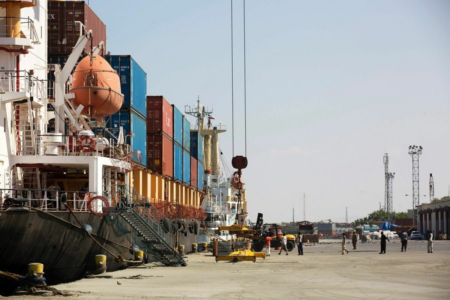In July 2025, China announced the removal of all tariffs on imports from African nations, including Somalia. This major policy shift opens up significant opportunities for Somalia to expand its fisheries sector and increase seafood exports to international markets.
Recognizing this potential, Somali authorities are accelerating improvements in fisheries infrastructure to meet the growing demand and compete effectively on the global stage.
Strategic Enhancements in Fisheries Infrastructure
Nor Daud Ibrahim, a fisheries officer at Somalia’s Ministry of Fisheries and Blue Economy, emphasized that improving infrastructure is key to boosting seafood exports.
Efforts are focused on upgrading quality standards to meet international safety and traceability requirements.
Investments are being directed toward enhancing fishing vessels, port facilities, cold chain systems, and transportation networks.
All of which are critical to ensuring the consistent delivery of high-quality seafood products.
More Reliable Supply Chain
Ibrahim also highlighted that Somali fishing vessels are often vulnerable to adverse weather conditions and the impacts of climate change.
By improving logistics and port infrastructure, the country aims to create a more reliable supply chain, which will allow fishermen to export fresh and processed seafood efficiently.
Legal Framework and Policy Development
A robust legal framework is another priority for Somalia’s fisheries sector.
The government is working to implement comprehensive policies and strategies that promote sustainable fishing practices while ensuring compliance with international trade regulations.
These policies aim to protect marine resources, improve the governance of fisheries, and provide a foundation for long-term sector growth.
Public-Private Partnerships and International Collaboration
To successfully develop the fisheries sector, Somalia is actively exploring public-private partnerships and engaging with international development partners.
Collaborative efforts with countries such as China are expected to provide both technical expertise and financial support.
These partnerships are seen as crucial to building a modern fisheries sector capable of meeting global standards and maximizing export potential.
Impacts of Fisheries Infrastructure Development on Somalia
The removal of tariffs by China presents a unique opportunity for Somalia to strengthen its fisheries sector and increase its presence in the international seafood market.
By investing in fisheries infrastructure, improving quality standards, developing a strong legal framework, and fostering international collaborations, Somalia is positioning itself as a competitive player in global trade.
If effectively implemented, these initiatives could boost the country’s economy, create new job opportunities, and provide a sustainable pathway for long-term growth in the fisheries industry.








